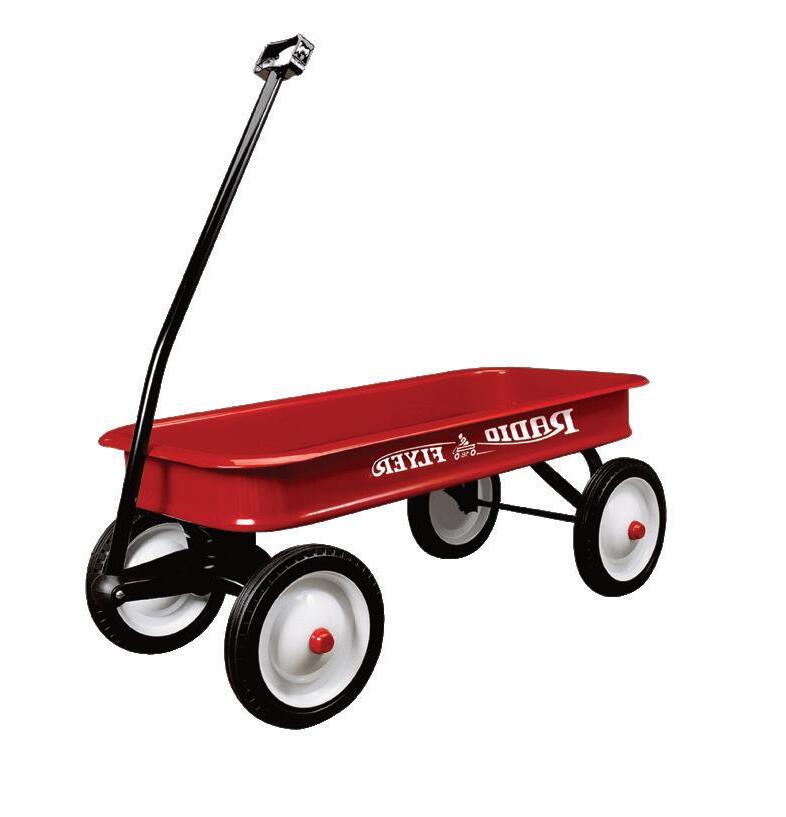








As an independent preparatory school, Sacramento Country Day provides students with a unique, enriching education.
However, the school also extends this opportunity to underprivileged students through the Scholars Program.
Started in 2017, the Scholars Program selects two incoming high school freshmen from underrepresented communities each year and offers them a four-year scholarship to attend Country Day, said Director of Advancement Rachelle Doyle.
“We typically look for students who have strong potential in academics as well as leadership, science, innovation or the arts,” Doyle said.
Under Country Day’s scholarship, students are provided with access to textbooks, a school-issued computer, college counseling and an SAT preparation course, as outlined by Country Day’s website.
On March 16, Country Day held its Annual Gala & Auction, “Sedona Nights,” which raised over $340,000 in gross revenue, according to Doyle. Of this total, $150,000 was raised in support of the Scholars Program.
“All of the money raised to support the Scholars Program comes from a speech given by some of our high school students, and they gave a great speech,” Doyle said.
Other proceeds from the auction go towards the school’s overall operating budget, specifically faculty salaries and tuition assistance.
On March 19, The Octagon held a roundtable discussion on artificial intelligence (AI) and its impacts on education. Six panelists — English teacher Jason Hinojosa, math teacher Jo French, librarian Jo Melinson, senior Alex Shuler, junior Cara Shin and sophomore Anisha Mondal, who did her Sophomore Project on AI — shared their perspectives on AI usage in education and what the future might hold. Included for some questions are answers given by GPT-4, OpenAI’s latest public Large Language Model (LLM).
SPRING FLING DANCE
On April 20, from 7:30-10 p.m., high school students are invited to attend the Sacramento Country Day Spring Fling Dance, held in the high school quad. Tickets are $20, and dinner will be provided.
Q: How do you use AI, and how much?
Mondal: I was more exposed to AI this year. I actually focused my Sophomore Project on the usage of AI in education. It has also been pretty helpful for studying. Sometimes I use it to generate brief summaries of chapters from books in our English class, especially the ones that have deeper meanings within them because I often miss that when I’m reading at home.
Shuler: AI has definitely helped me in studying and learning. There are so many questions I have, but with AI, I can get the answer right away or at least get pointed in
SPRING SHOWCASE
Sacramento Country Day will host its annual Spring Showcase on April 25, welcoming visitors from 5 p.m. to 7 p.m. During the event, teachers will exhibit students’ work, while student-run clubs will oversee tables representing their organizations throughout the evening.
the right direction. It has also helped me with testing myself on certain topics and grading any practice Free Response Questions that I do for AP [Advanced Placement] exams. It doesn’t do a great job with grammar and spelling, but it helps with getting general ideas and flow.
Melinson: I use AI all of the time but my interest is more philosophical, thinking about how it can be used. When I use it, it tends not to be for something I need to get done, but to experiment. I might spend a whole day just testing stuff with AI.
French: I use it relatively infrequent-
ly. I dabbled with Suno AI after it was introduced to me. Suno AI is a platform where you can generate songs based off of prompts.
I did use ChatGPT last summer to help me write a proposal for a stipend for some summer work. Filling out forms can be tedious and agonizing, so it was a great help in setting up a framework for me to personalize.
GPT-4: Users may tap into my abilities for clear explanations, succinct and quick summaries, creative content creation and
DUNE: PART TWO
Read a review of Warner Bros. Entertainment’s sequel of “Dune: Part One.” (PAGE 11)
PHOTO COURTESY OF WARNER BROS. PICTURES
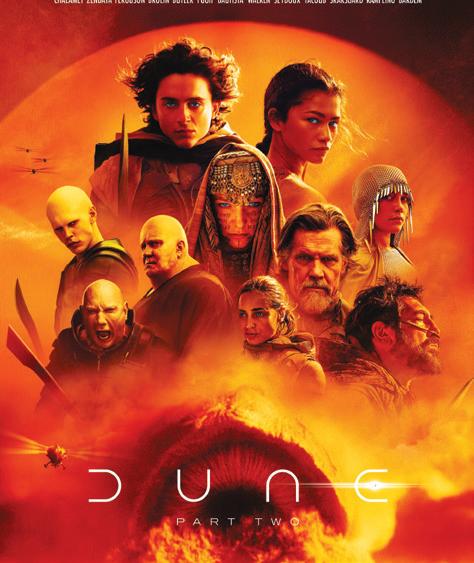
EDITORS-IN-CHIEF
Ava Eberhart
Lauren Lu Garrett Xu
COPY EDITOR Saheb Gulati
HEAD OF TECHNOLOGY
Siri Atluri
NEWS EDITOR Zema Nasirov
FEATURE EDITOR
Eesha Dhawan
SPORTS EDITOR
Andrew Burr
A&E/OPINION EDITOR
Ishaan Sekhon
PHOTO EDITOR Rehan Afzal
PAGE EDITORS
Rehan Afzal
Andrew Burr
Ava Eberhart
Lauren Lu
Anisha Mondal
Anika Nadgauda
Zema Nasirov Ishaan Sekhon Garrett Xu
BUSINESS STAFF
Saheb Gulati, manager
Aaryan Gandhi, assistant
Daniel Holz
SOCIAL MEDIA STAFF
Ava Eberhart, editor
Lauren Lu, editor
Anika Nadgauda, assistant
Anisha Mondal
REPORTERS
Kate Barnes
Elisenda Bota
Jesse Dizon
Aaryan Gandhi
Saheb Gulati
Daniel Holz
Ava Levermore
Rebecca Lin
Luke Scripps
Lillian Wang
PHOTOGRAPHERS
Rehan Afzal, editor
Rebecca Lin
Anika Nadgauda
Zema Nasirov
MULTIMEDIA STAFF
Zema Nasirov, editor
Andrew Burr
Jesse Dizon
Anika Nadgauda
Luke Scripps
GRAPHIC ARTISTS
Lauren Lu, editor
Claire Gemmell
Rebecca Lin
ADVISER
Andrea Todd
The
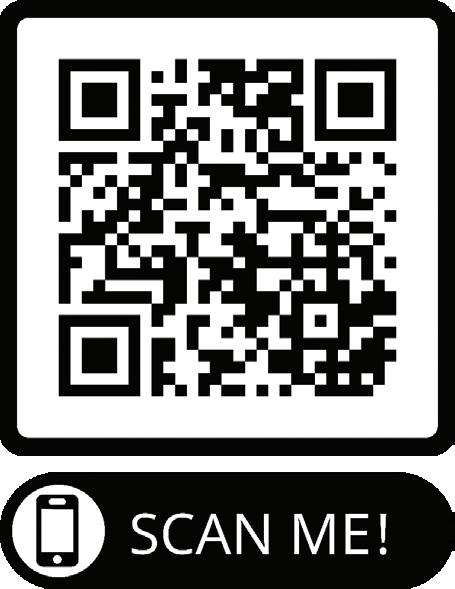
The Sacramento Country Day varsity Mock Trial team competed in the 2024 California Mock Trial Finals from March 23-24. They competed in four rounds at the Los Angeles County Superior Court Stanley Mosk Courthouse and placed fourth out of 32 teams, the highest Country Day has ever placed.
Round 1 took place on March 23 against Clovis North High School, where Country Day scored 472-442 and won all three ballots.
On March 24, Country Day won their next two rounds against El Centro’s Central Union High School and Irvine’s University High School, the scores being 355-298 and 472-442 respectively.
Afterwards, the team lost their fourth round against Marin County’s Tamalpais High School, two ballots to one, with a close score of 529-520.
Several students on the team were given recognition of their contribution to the team’s performance.
Sophomore Annabelle Do received an individual statewide award for her role as clerk. Senior attorney co-captain Eshaan Dhaliwal, junior attorney Garrett Xu and junior pretrial attorney and expert witness Saheb Gulati were each voted as most valuable player (MVP) by each of their opposing teams in separate rounds.
Mock Trial coach Rick Lewkowitz attributed Do’s award to her friendly and civil manner during trials.
“She often responds to the student attorneys by addressing even those from other schools by their names,” Lewkowitz said. “I think the judges appreciate that.”
The highest the team had placed prior was 11th, in the state finals last year. Junior witness Radha Chauhan attributes the improvement this year to the team’s experience.
“I think this year, all of our attorneys were trained and we all came prepared. It was
really a culmination of all of our efforts,” Chauhan said.
Senior co-captain Grace Zhao also said the team performed extremely well. She emphasized how far the team has come since she was a freshman, adding that they had very strong competition.
“We lost to Tamalpais in the last round by nine points. That’s crazy because in my freshman year, it was a big deal for us to just go to the county finals. But now we’re ranked fourth in the state,” Zhao said. Lewkowitz said that Tamalpais has won more state championships over the past 20 years than any other high school in California, making the team’s near win even more significant.
The state finals marked the end of the Mock Trial 2023-2024 season, and Lewkowitz plans to make changes next year. Mock Trial will no longer have a junior varsity (JV)
team in addition to the varsity team.
“It’s a little hard to give attention to the others if they’re virtually on a different team. It just doesn’t help with team unity,” Lewkowitz said.
He expects the students on the JV team, especially the current sophomores, to have enough confidence next season to perform well on the varsity team.
“I think a lot of it has to do with the fact that the unknown is gone,” Lewkowitz said. “The anxiety is gone and they can jump into it and really progress at a quicker pace.”
Zhao encourages the students on the Mock Trial team next year to grow into their potential.
“I want next year’s kids to remember that just because it takes hard work to get good doesn’t mean that they’re on the wrong path,” Zhao said. “I don’t want them to be discouraged by being amateurs.”
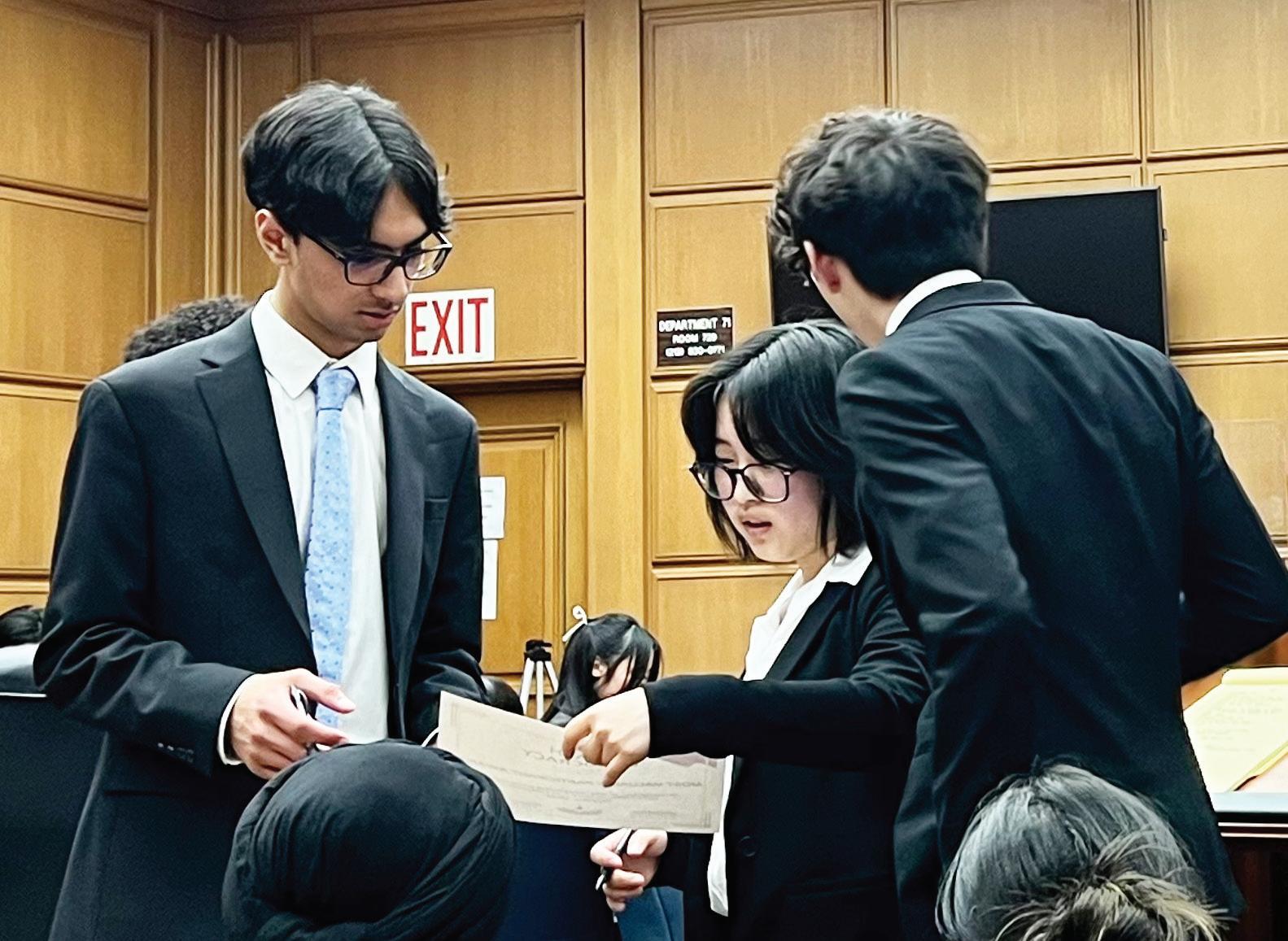
Sacramento Country Day’s Mock Trial team, led by coach Rick Lewkowitz since 2017, is familiar with success at the highest level. The team’s strong performances in tournaments throughout the 2023-24 season have made this year a banner one for the program.
What made the difference?
The addition of Mock Trial coach David Hill, who became a full-time coach this season.
Hill, who left Elk Grove High School, a long-time Country Day rival, to join the team in 2023, has been instrumental in preparing members for pretrial, a section of the competition focused on arguing a motion to exclude evidence obtained by a warrant within a trial.
“My primary responsibilities are to make sure students organize their material and make comments regarding their preparation for trial,” Hill said.
Hill first began coaching Mock Trial after a student in his debate class asked him if he could compete. He went on to coach at Elk Grove High School before leaving to join Country Day at the beginning of this year’s season.
“Mr. Lewkowitz helped me for 14 years at Elk Grove High School and I decided that maybe I could return the favor, at least in a small way,” Hill said.
Junior Saheb Gulati, currently participating as a pretrial attorney in his third year of Mock Trial, described the immediate impact that Hill made as a coach upon joining the team.
Last year, after his first season as a pretrial attorney, Gulati felt that there was room for improvement in his familiarity with case material, as well as with general public speaking.
“This year, a lot of that has changed. I’m significantly better, and the reason that I’ve been motivated to put so much more time into excelling at Mock Trial is almost completely because of Mr. Hill.”
According to Gulati, Hill’s devotion to the team in his first year is unquestion-
able. Though the Mock Trial team typically meets on Sundays, Hill has regularly met with Gulati multiple times after practice or throughout the week via Zoom.
Gulati said that there have been countless instances of Hill responding to late night emails within the hour, or providing crucial information to include in arguments.
“Even though he was never a lawyer, he has so much legal knowledge and years of Mock Trial experience that it makes him an amazing coach,” Gulati said.
Hill’s expertise in the intricacies of the competition has impressed many students.
“Mr. Hill will read up on the cases and come to practices with new ideas for us to implement, and we can use that advice to make our case as strong as possible,” Gulati said.
Hill has enjoyed coaching Country Day’s Mock Trial team, citing the team’s support-

ive culture as one of his favorite aspects of the job.
In his inaugural season as a full-time coach, Hill was truly impressed by the performance of the team.
The team has exceeded his high expectations, Hill said.
“I’m unaware of any other team that has achieved such a high standing in such a short period of time.”

(continued from page 1)
While the total tuition for two incoming freshmen is approximately $260,000, Doyle said that Country Day covers the remaining tuition not funded by the auction until it becomes affordable for the student’s family.
According to Country Day’s website, the Annual Gala & Auction has been held since 1978. Its funds have helped maintain educational excellence and provide tuition assistance and an environment for students to excel in.
“Every year since, a lot of parents have donated or helped plan the auction. So besides helping the school, the auction serves as a great way for parents to connect,” Doyle said.
The auction offers items and experiences for parents to bid on. For instance, this year’s auction catalog featured a range of items including wine, golf clubs, vacation homestays and two courtside tickets for an upcoming Sacramento Kings game.
“Typically, our community members donate items for the auction in addition to what the school donates,” Doyle said. “One parent had a connection with a restaurant owner and arranged a fancy dinner reservation for 10 people as an auction item.”
In preparation for the auction, four Country Day students were chosen to assist in the planning: junior Saheb Gulati and seniors Liam Kaschner, Zoe Genetos and Mia Crowder.
“The four of us had several responsibilities to fulfill for the auction to run smoothly,” Kaschner said. “We were asked to set up tables and help with expensive auction items.”
The students’ chief responsibility, however, was the writing and delivery of a speech to encourage donations for the Scholars Program.
“We all memorized our speech to sound professional and engaging because we wanted as many donations for the program as possible,” Kaschner said.
Senior Imani Cochran was one of the students selected for the Scholars Program in 2020.
She was first introduced to Country Day through Breakthrough Sacramento, a summer program that provides underprivileged students with extra academic support. She was especially interested in Country Day’s art elective, which eventually prompted her to attend this school.
Cochran said that she couldn’t have afforded the high tuition without the scholarship.
“The Scholars Program is giving me opportunities that I otherwise wouldn’t have had. If someone told me when I was younger, ‘Hey, you’re going to a private school …’ I would’ve been like, ‘you’re lying,’” Cochran said.
In addition to the financial support, the scholarship’s other resources also helped Cochran feel comfortable in Country Day’s environment.
Students are able to talk about their experiences, situations and next steps in school and life in private with other students of the Scholars Program, which Cochran finds helpful and supportive.
“For most people in the Scholars Program, our living situations are a lot different than our peers,” Cochran said. “But, you don’t feel alone or isolated from having a different living situation from your classmates.”
She appreciates Country Day for taking the initiative to give students a major opportunity when they aren’t obligated to do so and for caring about the welfare of students in addition to their academics.
“The school just cares about academics in general and helping people to succeed, which

I feel is a great trait of a good school,” Cochran said.
Doyle recognizes that the Scholars Program students often take on additional responsibilities like caring for siblings and working part-time jobs. However, they displayed excellent academic achievements before joining Country Day despite these obstacles.
“The ones that have shown that they are doing other things in their community are exhibiting the characteristics that we seek out of a Country Day graduate,” Doyle said.
She added that creating a space for students with all socioeconomic statuses not
only aligns with the school’s mission to be compassionate, but also benefits everyone on campus by diversifying student populations.
Doyle believes that enriching other people’s lives as much as possible is everyone’s duty, and increasing the diversity of people improves our world.
“When you add in different ethnicities, different socioeconomic statuses, different jobs and different backgrounds, your conversations become richer and your ability to problem solve becomes better. Everyone benefits from having access to different social circles,” Doyle said.
(continued from page 1)
detailed subject tutoring. Engagement with me varies greatly, from sporadic interactions for instant insights or inspiration to consistent reliance for educational guidance or creative projects. My role as a digital assistant allows me to adapt to the unique needs of each user, from casual queries to comprehensive educational support.
Q: How do you think AI will continue to impact your career or education as it grows?
Mondal: Since AI is always going to be a big part of our lives, I think that it can be used as a helpful tool to benefit people, especially students at school in terms of analyzing texts and documents.
While I was doing my research for my Sophomore Project, I learned more about how AI can adapt to user learning and I think that can be very beneficial for students as we all learn at different paces. For example, students who do not understand a topic at first can use AI to help simplify the topic.
Shuler: I think that as AI grows in education, teachers will find better ways to incorporate AI to make it a better tool to enhance learning.
I don’t think that AI will affect my career in physics that much, but I think that for other careers like art and writing that can be easily replaced by AI, many people will probably be discouraged to go into those fields.
Shin: In however many years, AI will fundamentally change the skills required for certain careers. Along with the obvious, work could become easier and faster to complete. Things like paraphrasing, annotating or brainstorming might become obsolete skills.
French: I think we’re on a cusp, similar to where we were when graphing calculators came out. There was a great horror that went through the math community, that students would no longer have to think because calculators would do the work for them.
What happened with calculators is that we evolved to ask more sophisticated, conceptual questions so it could be a useful tool. I think that’s kind of where we are now. There’s this worry that AI can give you all the answers, but we’re not using it right yet.
Q: Has AI significantly impacted your curriculum structure and content?

Melinson: For the Sophomore Project we definitely thought about how kids might want to be using it, especially because the day that ChatGPT came out was right when everybody was writing the papers last year. We definitely needed to think about it, add some guidelines and talk about what we think is the legitimate use of this for your paper and what’s not.
French: I guess for me, it hasn’t impacted my area yet, as far as the goals for my course. For homework, there are certainly engines out there that can do it, but when it comes down to it for an AP exam there’s no AI to help you. I have no problem with using AI to check your work, but you have to practice and learn yourself.
Hinojosa: I wish I shared your [French] sentiments. I’m far more suspicious of the work that I receive, especially the written work. It doesn’t always match the written work that I receive that’s handwritten.
There’s a lot of different reasons for that though, but there’s still just an underlying queasiness that I feel now when I read student writing, this queasiness of suspicion and doubt, which I do not really like.
I’m not yet at the point where I say not to turn in anything typed anymore, or where I say every written assignment has to be on a locked device where you can’t use spell check or grammar check. But English has to be a class where I know what you’re actually generating.
The calculator comparison makes a ton of sense to me, and I think it would be a missed opportunity to not incorporate this. But I sort of feel like I have my head in the sand a little bit, and I don’t see how to do that yet.
Q: Is there anything you think that other students, teachers or the campus as a whole should consider when thinking about AI and education?
Melinson: We need to consider the purpose of what we use. What are the goals we want to achieve? Whether you’re a student who’s using it or a teacher who’s consider-
ing using it with your students, you should always keep that in mind. I think that’s true of any new things that you use in education. What’s the purpose? Is it serving that purpose?
AI was not created with education in mind. So I don’t think that we as educators and students should necessarily think we have to do this. We have to prepare our students for a world that contains this, which is different from saying we have to use AI in a specific way.
French: We should go back to our school mission, and think about whether the use of AI can move us closer to that goal. Think critically, live creatively and act compassionately. Are there ways to use AI as a tool to make us better?
GPT-4: For students, teachers, and educational institutions, it’s important to consider the balance between leveraging AI for educational advancement and maintaining academic integrity and personal development. Embracing AI should not replace critical thinking and creativity but rather augment these essential skills. The conversation around AI in education should also address ethical considerations, data privacy, and the digital divide to ensure equitable access and responsible use.
Shin: There’s a lot of AI art now. You can completely tell the difference between a person’s or an AI’s art. But even then, if I created an image and the AI was able to create the same style and same quality, I just think that’s what most people would choose the person’s art. I just don’t think you can replace the human experience.
Hinojosa: There is something good and beautiful about the things that we make, especially when we really put our hearts into them. What is powerful is when you say, “I made this essay on Lord of the Flies. It’s not brilliant. It’s not groundbreaking, but it’s mine. And I believe in it.”
Tenacious.
That’s the word Sacramento Country Day biology teacher and Pre-Med Club adviser Kellie Whited used to describe senior Zoe Genetos.
“Zoe is incredibly determined,” Whited said. “If a task is going to take X amount of effort, she’s going to put in 100X.”
Students, teachers and family describe Zoe as hardworking, high-achieving and social — a force on campus for what she cares about.
“Everything I do is with a goal in mind, it’s for a reason,” Zoe said.
Zoe has applied her skills to a wealth of activities in and out of school: co-running Country Day’s Pre-Med Club, organizing the school pep rallies, serving as the Chair of Spirit for Student Council, leading the Solar Regatta team and co-captaining varsity girls volleyball (and assistant coaching the boys volleyball team to boot).
Whited has taught Zoe in the summer biology class, AP Biology and Advanced Topics in Anatomy and Physiology.
Academically, Whited describes Zoe as a dynamo with a tremendous work ethic.
“Zoe just gets it done. She’s constantly pushing herself to her personal best,” Whited said.
In summer biology, a rigorous academic course, students often have their study habits tested to their limits.
Zoe was quick to adapt.
“Instead of waiting till after the first test or when it was too late, she came to me to figure out how she could pivot and improve,” Whited said.
As the Pre-Med Club adviser, Whited has seen Zoe revitalize the club to be more active than in previous years.
In particular, Whited is impressed by Zoe’s organization, ambitious goal-setting and maturity.
“I forget I’m talking to a teenager
at times,” she said. “She has an agenda and there’s not a lot of fluff. It’s like having a conversation with a colleague.”
Mathematics Department Chair and Dean of Student Life Patricia Jacobsen has also seen Zoe’s leadership abilities through activities such as student council, Solar Regatta and volleyball.
“She’s extremely efficient and organized,” Jacobsen said. “If there’s a job on campus that needs to be done and Zoe is on that team, I can be confident that the job is going to get done well.”
In December 2023, Zoe co-organized the school’s homecoming pep rally.
“It was organized flawlessly and so fun that several faculty members commented it was the best pep rally they had ever been to,” Jacobsen said.
Especially when there’s a void of leadership, Zoe shows no hesitation in stepping up and taking charge, Jacobsen said.
Zoe said that her approach to leadership varies based on the needs of each activity and who people expect her to be.
Zoe pours all of her energy into everything, delegates jobs, organizes, anticipates problems and executes, Jacobsen said.
Jacobsen can always count on Zoe to exceed her high expectations.
“If I gave her 100 practice problems to prepare for a test, she’d ask for 100 more,” Jacobsen said.
What surprises Jacobsen is that Zoe is able to execute in so many areas at a high-level.
“For many people, all of the stuff that she does would be overcommitting. But she’s able to do it all, and do it well,” she said.
According to Jacobsen, Zoe also excels in managing her stress across these activities.
Zoe’s younger brother, sophomore Jake Genetos, observed Zoe use her organizational and stress management skills to stay on top of college applications during senior year.
Jake also competes on Country Day’s
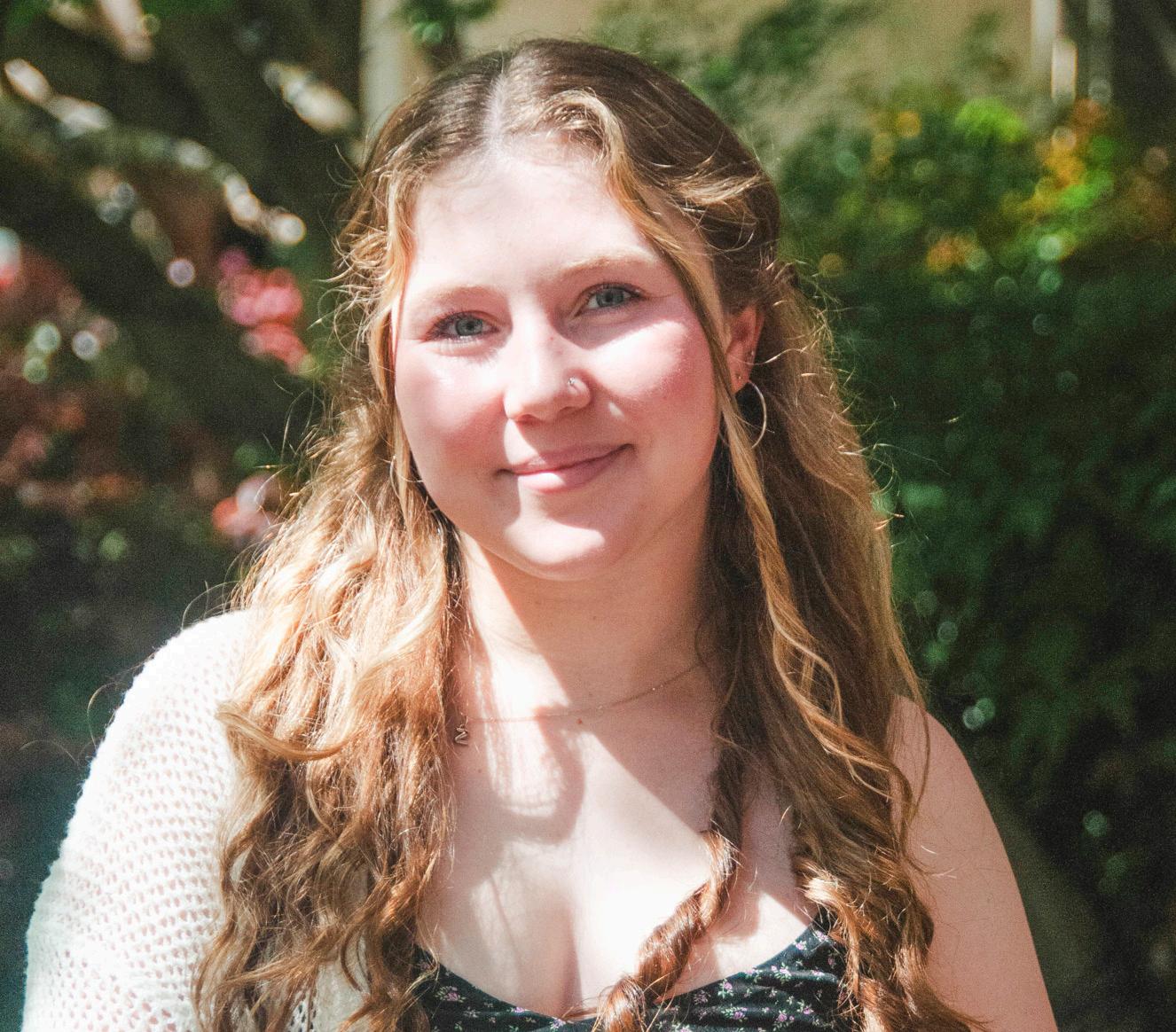
boys volleyball team, where Zoe is an assistant coach.
When coach Jason Kreps was absent, Jake watched Zoe step into a leadership role and coach for the week.
Jacobsen has known Zoe since fifth grade, when she befriended her daughter, senior Kaitlyn Dias. The two served as co-captains of the girls volleyball team this season.
Jacobsen believes that Zoe’s serving style, even back when she was a middle school student, encapsulates her personality.
“A lot of kids get nervous when they go up to serve,” Jacobsen said. “But when Zoe serves it, there’s no hesitation.”
As friends, seniors Brooke Barker and Annalucia King also speak highly of Zoe, describing her hard-working and determined but also social and adventurous.
King, Barker and Jake all agree that Zoe is kind and helpful.
“She inspires me to look out for people more,” Jake said.
Considering the rigor of Country Day’s curriculum, Zoe believes that the majority of students should try and be nicer to themselves and others.
“Please take a second, say a few words to yourself in the mirror, be nice to yourself and you’ll put your best foot forward,” Zoe said.
Another recommendation Zoe has for other students is to take initiative and not shy away from hard work.
Zoe is committed to the University of California, Los Angeles and plans to major in physiological sciences.
Whatever the challenge may be, social or academic, Whited has no doubt that Zoe will rise to meet it.
“She dreams big, and for Zoe, there’s no quit. That’s never an option.”
Sacramento Country Day’s most avid STEM enthusiasts are quickly ramping up preparation for this year’s Solar Regatta.
The SMUD California Solar Regatta is an annual competition between Sacramento high schools, where students are tasked with designing and racing their own solar-powered boats.
Senior co-captain Ike George has participated since the team’s formation two years ago. Outside of the competitive aspect, the project is important to George because he gets to have fun with friends while exercising his engineering skills.
Reflecting on the last competition’s shortcomings, particularly in experience and equipment, George has faith
Each year, teams compete in three categories: a slalom, a straight-line race and a 30 minute endurance circuit, taking place at the Rancho Seco Recreational Area.

that the team will improve.
“Last year, we came in third place in slalom, third place in speed and almost last place in endurance,” George said.
This was primarily due to driver error and steering issues.
However, the boat’s performance in the endurance race was not the team’s only challenge.
In 2023, the boat was never tested prior to the competition. The chief reason was the difficult logistics of transporting such a large boat.
The lack of testing led to complications, but that will likely change this year, George said. He is optimistic about opportunities to get the boat in the water before competing this time around.
This year’s improvements are not just limited to preparation — they also include a major mechanical update.
According to George, although the basic frame will be the same one from last year, the boat will use virtually all new parts. It will be propelled by the best motor money can buy, George said.
Senior co-captain Liam Kaschner played a key role in making these improvements possible.
“We were able to secure a grant for the Solar Regatta, allowing us to
get our new motor, which cost about $2,800,” he said.
Kaschner began preparations for the competition in the summer of 2023. His work included securing the $2,800 grant and beginning discussions with the motor company about the details of the boat.
Kaschner searched for potential donors by asking Director of Advancement Rachelle Doyle if there were any interested families.
“I later learned that we got a pyramid grant,” he said. “The premise is that we can spend what we need as long as it’s for educational purposes and for the Solar Regatta boat.”
For Kaschner, participating in the Solar Regatta is not only valuable because of the opportunity to work with the updated systems, but also because being on the team gives him the chance to learn how to work with people in an engineering setting.
Overall, he is optimistic about the 2024 competition.
“With the new motor and simplified user steering, we should see some great performance,” Kaschner said. “We’ve learned a lot about what the judges want to see, so we’re able to cater to what they are looking for this year.”
Sophomore Jessica Kravchenko has been working at Radio ETHNO FM 87.7 for two years.
Radio ETHNO FM 87.7 is a Slavic radio station that interviews children and families who moved to the United States from Ukraine and Russia. The Radio ETHNO FM started 30 years ago. The program Kravchenko works on is called “I Want I Can I Will,” which started two years ago. She works as a part-time radio host every Saturday for two hours, earning $100. Kravchenko interviews Slavic children on their hobbies and interests. In doing so, she hopes to bring light to the opportunities that other young Slavic immigrants have in the U.S. “We want to show them that a future here is possible, even if you came here with nothing,” Kravchenko said.
Kravchenko discovered this job while performing at a Ukrainian festival singing the American National Anthem acapella. The radio station owner was working at the same event and offered her a paid position. Kravchenko jumped at the opportunity and is now the youngest radio host there.
She has learned about a variety of hobbies and interests from the kids she interviews, which she finds exciting and fascinating.
“I find it fascinating that I can meet people of the same background as me and create relationships that I might have never had before,” Kravchenko said.
Before she starts an interview, she always researches the activity that her interviewee participates in. At times, Kravchenko can discover an unusual bit of information about a subject that she
Senior Katie Espinoza has worked as a store associate at the Alta Arden In-N-Out Burger for the past two years. Espinoza’s job mainly consists of working at the drive-through and operating the cash register.
With her prior job experience at her mom’s salon and an accounting office, Espinoza be lieves her resume was a standout when ap plying to In-N-Out Burger.
“I obviously didn’t know everything, but I had a good foundation. I think having worked before in customer service gave me a boost to getting hired,” Espinoza said.
The main factors that made Espinoza want to work at In-N-Out were having her own source of income and a flexible schedule.
“You can put in any type of sched ule you want and you’ll get hours pretty often. They’ll work around your schedule,” Espinoza said.
Espinoza is on her third salary raise at In-N-Out Burger. In 2022, she made $17 an hour. In
wasn’t aware of prior.
One of Kravchenko’s favorite interviews was with a kid who collected insects and kept them in a tank in his room.
“How are people not scared of insects, when I’m about to run out of the room when I see one? He was just holding a roach very easily and was happy with it,” Kravchenko said.
While working at the radio station, she has learned how to talk naturally on-air.
“Not all people are comfortable talking in front of the microphone or knowing that they are being recorded. For me, it’s a natural thing. I just love it,” Kravchenko said.
Kravchenko has learned that time management is key to working at a radio station. For example, there is a only short time period to conduct an interview before the show cuts to an advertisement.
“You have to make sure you get all of your information out before the break,” she said.
Kravchenko manages her work and school by being flexible and using her free time to think about her job.
“When at school, I study and I prepare,” she said. “I choose a day or two where I just sit down and research or think about what questions to ask during the interview.”
Kravchenko plans to include her job experience in her college applications and hopes to continue working for Radio ETHNO FM 87.7 throughout the rest of high school.
“Honestly, I don’t feel like I’m working. It feels like a hobby,” Kravchenko said.

Junior Alex Zinn’s job in construction was, well, constructive.
Zinn worked throughout the summer of 2023 nearly every morning, usually in four to eighthour shifts every day. He was paid $16 hourly.
Zinn helped wherever he was needed, often ending up working on fences and electrical work.
Zinn landed this job through the manager who previously renovated his house.
The manager offered him a position, so Zinn took it. Zinn followed safety precautions by wearing gloves,

2023, California passed Assembly Bill 1228, increasing her pay to $19 hourly. Later, a promotion increased her pay as well, making her salary $19.50 an hour. After a third raise, Espinoza currently makes $20.50. As another result of the new law, starting in April, she will get a $2 raise, increasing her pay to $22.50 an hour.
“I’d say it’s pretty good for a high school job,” Espinoza said.
In-N-Out Burger provides workers with one free meal after they finish their shift. Espinoza’s favorite order depends on her mood.
“I’ll get a cheeseburger, protein-style, which means that the burger is wrapped in lettuce instead of a bun,” Espinoza said. Moving forward, Espinoza would like to go into the medical field. Over the summer, she plans on getting a job as a certified nursing assistant (CNA), as she already has a license. Espinoza got her
which helped protect him because he did a lot of demolition work.
“There are rusty nails and stuff everywhere, and I don’t want to get tetanus. So having the gloves helped,” Zinn said.
Even after following these precautions, however, Zinn still couldn’t fully avoid the dangers that came with this work.
“I electrocuted myself three times, so that was fun. I complet ed a circuit on an exposed outlet. Nothing happened, it just hurt a little bit.” Zinn said.
Zinn’s favorite part of the job was working with concrete.
“I drill out concrete, make
Stop by Jack’s Urban Eats in Loehmann’s Plaza, and you may find junior Milly Wong making salads.
Wong wanted to work at Jack’s to experience having a job before college.
This particular location is convenient for her because of its close proximity to school. She has been working at Jack’s since June 2023 for approximately eight to 16 hours a week, earning $16 per hour.
With tips, on average, Wong makes around $20 to $22 per hour.
She is provided benefits by her employer, including 30% off each item she orders off the clock.
“When I am working, I get 70% off and I don’t have to pay for drinks,” Wong said. At Jack’s, there is a certain dress code

CNA license after taking a 4-week/160-hour long class and the state board exam.
“With a CNA license, you mainly work as a nurse’s assistant by doing direct patient care. This includes activities for daily living, like helping patients walk, eat, dress themselves and maintain basic hygiene,” Espinoza said.
CNA’s primarily work in nursing facilities, hospitals and in-home healthcare.
“I know working in the medical field is going to be demanding. It’s going to require the quality of not wanting to give up,” Espinoza said.

Wong must follow.
concrete and then put the new concrete in,”
“I could not have done construction during the school year, because we worked in the morning exclusively,” Zinn said.
From his construction job, Zinn learned fundamental skills that he believes will help him in
“I learned how not to electrocute myself, and I also learned how to use power tools efficiently which has helped me greatly,” Zinn said.
He also learned that he greatly enjoys electrical work.
“One thing I might go into is electrical engineering,” Zinn said.
“I can wear any pants as long as they are not sweat pants, leggings or athletic wear, and any top, as long as it doesn’t have words or pictures,” Wong said.
Wong manages her time between school, extracurriculars and work effectively.
“I have soccer after school and then I have work right after, but normally I get off work around 10 p.m.,” Wong said.
Wong plans on showcasing her employment experience in her college applications. Although Wong’s future may not include salad-making and working in the restaurant industry, it certainly will include the time management and work ethic she developed at Jack’s Urban Eats.


Once upon a time, teenage romance was awkward. Students slipped notes in classes and confessed love with rose bouquets. Now, relationships are confined to their screens as students maintain Snapstreaks, send reels and slide into direct messages.
The modern landscape of dating has shifted dramatically for today’s teens, shaped by the prevalence of casual dating and non-committed relationships.
No longer confined to high school hallways, relationships bloom and wither in an ongoing online cycle.
For senior Mia Crowder, a driving force behind this cultural shift is the normalization of hookup culture, which emphasizes casual sexual encounters or relationships without emotional bonding or commitment.
“It’s not something that is necessarily new, but with constant access to meeting new people online, it becomes this frivolous thing to simply talk to and interact with people you find attractive instead of searching for a true connection,” Crowder said.
Senior Lauren Lu echoed Crowder’s perspective on casual online interactions and superficial attraction.
Lu believes social media fosters unrealistic expectations for romance and promotes hookup culture, as algorithms tend to highlight conventionally attractive individuals, which feeds distorted perceptions.
As high schoolers mindlessly scroll, evaluating potential partners solely based on superficial traits, they often neglect to seek deeper emotional bonds, she said.
“The human brain is not meant to see that many attractive people in a single day,” Lu said. “It makes people’s standards unrealistic.”
Lu also points to social media as a cultivator of the mindset that relationships are disposable.
While it does facilitate convenient communication, it also allows people to develop the same connections in an instant with potential suitors online, she said.
As a result, Lu feels that many of these relationships lack the depth needed to foster loyalty and understanding.
This concept is furthered by what TikTok users have coined the “Three Month Rule,” where partners use the first three months of a relationship as a trial period to decide whether or not they want to commit to a relationship.
Lu believes that this seemingly unavoid able argument period in all relationships can be minimized.
People often rush into relationships with out truly understanding their partner then become surprised by their behavior outside of your perception of them, Lu said.

“You get into relationships so quickly without fully knowing the person, and after three months, you’re shocked that this person does something outside of your perception of them,” she said. “In reality, you just don’t know your partner well enough before starting to date them.”
Lu encourages people to invest time into bonding with a potential partner on a platonic level — before jumping into a relationship.
With the friendship established, one would feel less inclined to leave when conflicts emerge, as it provides the foundation for persevering through rough spots, Lu said.
This mentality extends to attention spans and a lack of motivation to invest time in re lationships as well.
“You expect an instant connection, and if that doesn’t happen right away, you move on to the next person,” Lu said.
Snapchat allowes users to easily con nect with others and maintain interactions through features such as Snapstreaks — the exchange of photos on Snapchat once per day with a person to maintain a streak.
Crowder finds that with this format, peo ple easily create superficial representations of the person behind the screen, leading to the infamous “situationship” — an ambigu ous, romantic relationship that lacks clear commitment or labeling from both parties.






“There’s never a mutual situationship,” Crowder said. “One å wants a relationship, while the other can’t commit to putting a label on it.”

Sophomore Kamron Khodjakhonov has been on both sides of a “situationship”. In previous “situationships,” he has been love bombed — a manipulative tactic involving excessive affection to create dependency — and seeking a long-term relationship, yet he still finds himself engaging in such encounters.
“I feel bad when I lead someone on like that because I know how it feels on the receiving end of it, but sometimes the temporary happiness of being wanted makes me do it in the moment,” Khodjakhonov said.



 STORY BY ZEMA NASIROV; NADGAUDA AND
STORY BY ZEMA NASIROV; NADGAUDA AND







While Khodjakhonov still chooses to search for relationships despite his experiences, sophomore Lillian Wang has decided to avoid high school relationships altogether.
Wang believes she would struggle with the time and energy demands of a high school relationship, ultimately leading her to forgo pursuing any romantic relationships during her high school years.
“If I were in a relationship, I wouldn’t be able to give them my full attention, and I would likely end up making my partner feel unappreciated,” Wang said.
In addition to the challenge of distributing time and energy, Wang believes the high school environment itself presents challenges for nurturing genuine relationships.
“In high school, some people pursue relationships without really knowing you,” she said. “They just want the structure of being in a relationship, so they tell you they like you even when they don’t mean it.”



Lu echoed similar sentiments, pointing to the rumor mill and public scrutiny as roadblocks.
“Young people are more susceptible to rumors,” Lu said. “If you hear something about your partner and it spreads around school, you’re gonna believe it, and that causes a lack of trust.”
This observed lack of authenticity and pattern of succumbing to peer’s opinions by Wang has deterred her from seeking out a relationship in high school.
 LAUREN LU
BY ANIKA
LAUREN LU
BY ANIKA
However, the pressures and outside influences shaping teenagers’ perceptions of relationships do not solely stem from classmates.
Social media has emerged as a pervasive force, bombarding teens with curated depictions and unrealistic expectations about romance.
Online trends also facilitate ways for couples to test their commitment — one example being the “Orange Peel Theory.”
The theory suggests that a caring partner will peel and prepare an orange for you unprompted, a thoughtful gesture demonstrating their attentiveness to your needs and desires.
It is a way to gauge if your partner goes the extra mile with small acts of service and consideration for your potential wants, but the test can prove to be harmful, Lu said.
“Testing your partner creates issues or insecurities in a relationship that wouldn’t


be there in the first place,” she said. “If they don’t peel an orange for you, maybe just ask.”
While social media presents challenges in dating, a junior that requested anonymity has found innovative ways to leverage platforms like Instagram to strengthen their current relationship.
In the early stages of getting to know their partner, they would often send funny or relatable Instagram reels as conversation starters. By sharing bite-sized video content that resonated with their interests and humor, they could organically spark discussions and learn more about their partner’s perspectives and personality.
The junior believes this modern approach, facilitated by social media, provides a low-pressure way to peel back layers and cultivate a deeper understanding of one another.
Ease of communication may present benefits to those in long distance relationships, where partners are not able to see each other face to face every day, the junior said. Despite the closer connections it can foster, Crowder views social media platforms as a toxin to modern romance, as well as a way for relationship statuses beyond “single” and “taken” to be normalized online.
“Social media also feeds into the phenomenon of situationships with terms like love bombing showing up on your ‘For You Page,’ leading people to label whatever is going on in their love life,” Crowder said.
To avoid falling into a situationship, Crowder aims to ensure that feelings are mutual. If she senses any uncertainty, she steps away from the situation rather than deceiving herself with false hope. Crowder found that her tendency to create small circles of friendships carries through out her approach to dating — sticking to it.
“If I find someone that I like, I just stick to it. And if it fades, I’m not immediately searching for a new relationship.”
For those currently in a situationship, Crowder recommends initiating an open and honest conversation to define the relationship, thereby gaining clarity and lessening emotional uncertainty.
“You may be hit with your worst fears of someone not wanting to be serious, or things might work out, but whatever happens, it’s better to have that conversation than not know what’s going on between the two of you.”
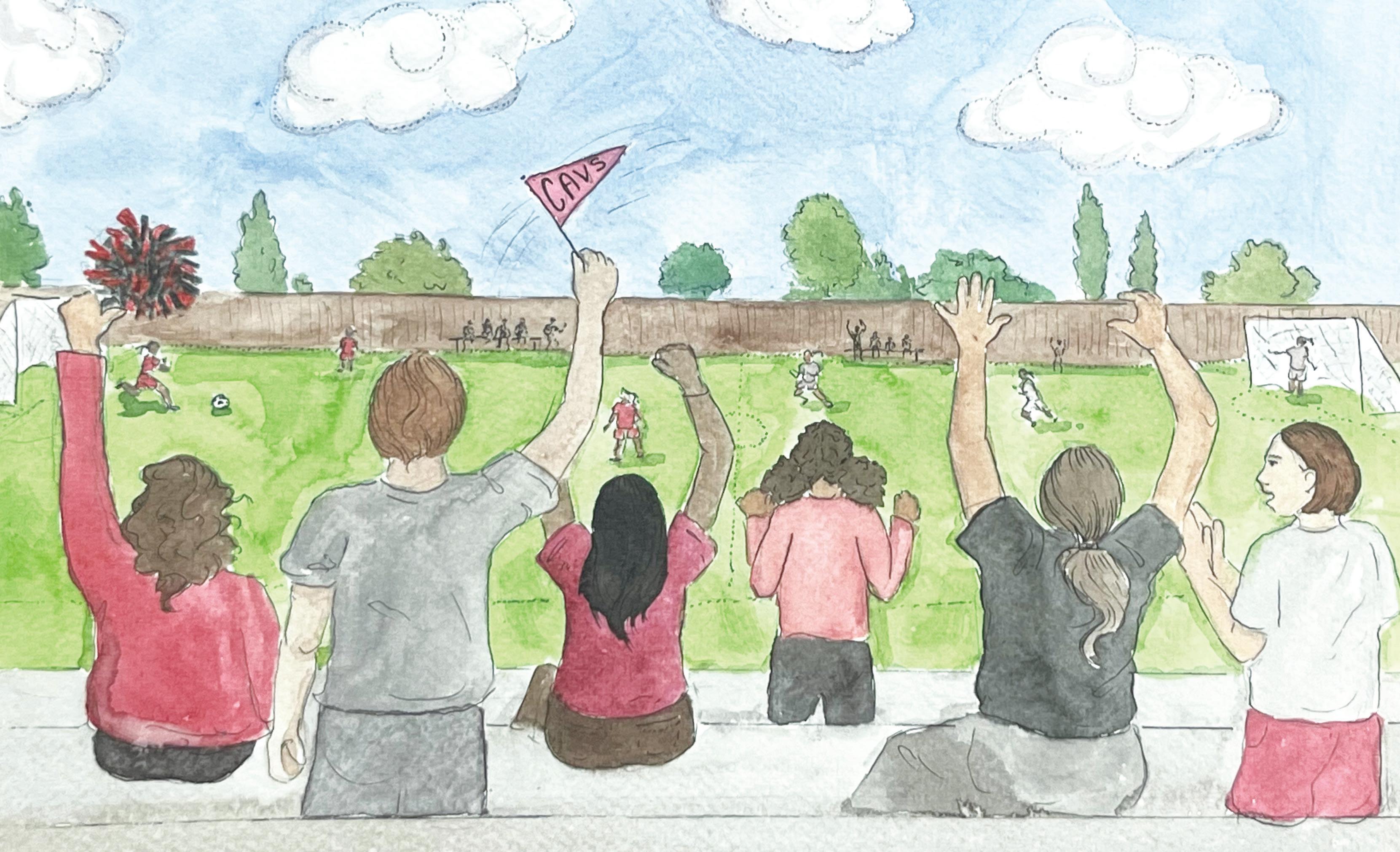
“Cavalier
There are over 40 teams in 14 different sports provided at Sacramento Country Day, but only a select few receive constant and substantial student support at home games during their respective seasons.
Celebrating school spirit and cultivating a connected community should be a priority, yet a disconnect exists in the game attendance and support of student athletes once the season starts.
Although students may have outside commitments that interfere with their ability to attend home games, the responsibility of support still lies within the hands of the student body. When they are available, students should attend as many games as possible.
While it is understandable that attending away games might pose logistical challenges, home games are made to accommodate the students of the home school.
A gymnasium with full stands not only provides tangible motivation for the ath-
letes on the court, but it also fosters a sense of unity within our student body. It generates a collective energy and unites us as a community, beyond the boundaries of the court.
Still, there is a glaring disparity in the turnout at a boys varsity basketball game than that of a girls varsity soccer match. While the former holds a vibrant crowd of students packed shoulder to shoulder, buzzing in their seats with pride, the latter is often met with empty bleachers. Senior Sylvia Valverde, girls varsity soccer team co-captain, has encountered this backdrop every spring season.
“We have grown used to a lesser-student crowd, and sure, it’s disappointing, but now it’s just something we expect,” Valverde said.
In the midst of their third season, the team ranks fourth in their league, only five matches into the season. Despite their strong performance, they have received less fan turnout than other school sports
teams, leaving few students to experience their victories and goals live.
“Even though there still isn’t a large turnout, we have started to gain recognition,” Valverde said. “People have started to check in more often on our progress and it feels great.”
Supporting our school’s sports team is not only about cheering for the victories; it is about standing by our classmates through every triumph and setback.
“Whether or not it’s a 0-6 loss or a 6-0 win, having that support of your classmates and knowing that your friends are all cheering for you helps you stay in it for the entire season,” Valverde said.
Sophomore Gavin Wang has experienced a stark contrast between playing in front of a full gym and an empty one, having played for both the boys basketball team and the newly-added boys volleyball program.
“It’s all about the moral and the mindset,” Wang said. “Having more people there alleviates pressure and having that pres-
ence behind you, knowing that there are people on the bleachers cheering for you, helps you execute to your full potential.”
As a Cavalier fan, you may not be playing the game, but you are contributing to it. Presence motivates the players on the court, and it creates an environment where student athletes can thrive when it matters most.
Student athletes dedicate hours to honing their skills, sacrificing their time and energy to excel in their respective sports. Support is vital to their success.
“A loud environment translates into hype on the court and it pushes us to perform at our best,” Valverde said.
By rallying behind our teams, we validate their hard work, fuel their determination and cultivate an environment where collective spirit thrives.
Active spectatorship is a powerful testament to our commitment to celebrating the triumphs and resilience of our student athletes.
Voting is the last thing on a new 18-yearold’s mind. Many young adults are primarily concerned with being finally able to be their own person and enjoy life relatively free from parental supervision.
However, voting is still a right that is granted upon one’s 18th birthday and should be exercised as soon and as often as possible.
The future of this country is in the hands of young adults, and we should take steps to educate ourselves about political ideas as soon and as accurately as possible — to protect this future and our democracy.
Due to many news sources and outlets being politically biased (MSNBC, Fox News), and information on the internet skewed by parties attempting to push their agenda, gaining accurate political knowledge and information may seem like a daunting task to some.
There are numerous simple and easy ways to educate oneself about politics.
The best place to start learning about politics is the beginning. Explore the fundamentals of the United States political process from how laws are made to how politicians get elected into office.
U.S. History is also one of the most important building blocks. You can learn how we became a democratic nation and study the core ideals of our country by analyzing foundational documents, such as our Constitution.
This is vital for understanding the vision of different political parties in the present day.
An easy way to become active in searching for political knowledge is to connect with local representatives. Finding issues that matter and talking to local candidates about such issues gives insight into how politicians handle important topics and problems.
Things as simple as visiting a state representative’s office and having a conversation can be extremely effective methods of learning.
Researching political parties, their viewpoints and their plans for the future is vital to understanding exactly what they stand for.
Parties are groups that are attempting to appeal to a massive amount of people: Find out exactly what they believe in and specifically what aligns with your views. There
are two main parties in the American political system, Democrats and Republicans, but also other parties worth your consideration.
Every party will have good and bad things about them, so conducting in-depth research is important.
When garnering information, using multiple different sources and large amounts of research is extremely important. If one finds information from a left-wing news outlet about a certain event, they should focus on finding the corresponding rightwing source and vice versa. Instead of solely relying on these sources, collecting straight data and metrics will help oneself to remain unbiased.
Sources, such as Govtrack, provide straight-forward information on individual political records, including report cards and bipartisan bill-passage rates.
Another thing to keep in mind is that the viewpoints of political parties change constantly, shifting with the times. As such, no political party holds true to certain ideals forever, and dynamic changes occur frequently within the parties. The most important thing is to hold
strong to one’s ideals instead of a certain political party.
Many people are tempted to side with a party just because their family, friends, teachers or peers agree with such viewpoints, but maintaining an independent mindset is key to remaining accurate with one’s knowledge.
Learning information for one’s own is the best way to become educated, without worrying about certain filters that social media and news outlets place upon it.
A situation that new voters frequently encounter is failing to register in their state.
Many new adults are fresh out of high school and entering their first year of college, often located in a different state. New voters are unable to vote if they are not registered in the state of their college, and doing so is of utmost importance.
Ultimately, some familiarity with history and politics is extremely important for one’s duty as a voting citizen in the United States.
For all young adults, voting and becoming politically active is something that should be pursued instead of feared.
The allure of social media is undeniable, with endless content and the promise of increased connectivity.
But we can no longer overlook its harms.
Last year, United States Surgeon General Vivek Murthy issued a health advisory dedicated to the dangers that social media poses for teens.
However, young people continue to heavily engage with social media platforms.
A 2023 Pew Research survey of 1,453 U.S. teens aged 13-17 found that one third of respondents use apps such as TikTok, Instagram, Snapchat and Facebook “almost constantly.”
On average, teens use social media 4.8 hours per day, according to a survey by Gallup.
In the advisory release, Murthy called for urgent action by policymakers, technology companies, researchers, families and young people to gain a better understanding of the full impact of social media use.
There are two types of potential risk for young people who use social media. One way is via exposure to harmful content, including cyberbullying. Harms can also arise from excessive or problematic use.
Another related 2023 Pew survey indicates that these risks are generally more pronounced for teenage girls ages 15-17 and for children and teens who already manifest symptoms of depression or anxiety.
That’s not to say social media isn’t without benefits — it’s not all doom and gloom. Social media can in-
crease connectivity, interaction with different modes of thought and access to opportunity. Teens who feel marginalized within their real-life communities can find support online or discover they are not alone.
Despite the flourishing communities that exist on social media, for various reasons, some have advocated for the abolishment of platforms like TikTok in the U.S.
But the right path forward isn’t replacing or abolishing social media; instead, we must change our collective habits to encourage healthier and more responsible behavior online.
How do we implement these changes?
It’ll take many stakeholders.
Perhaps most importantly, as youth, we should take steps to moderate our usage. Many of us have fallen prey to “doom scrolling,” or extreme usage of social media.
Social media can be a force for good, but in order to properly utilize this tool to lead happy and healthy lives, we need to log off more often and for longer periods of time.
Parents should utilize the growing body of tools that help with monitoring the online experience of their kids.
Social media companies should also be more conscious in addressing the negative externalities of their apps. Similar to how cigarette or e-cigarette packs have labeled warnings, we need these organizations to include disclaimers about misuse.
One currently proposed bill, the Kids Online Safety Act, is supposed to help police companies that fail to prevent kids from seeing harmful content on their plat-
forms. It would also ban kids 13 and under from using social media and require companies to acquire parental consent before allowing children under 17 to use their platforms.
According to the Brookings Institution, some states — Arkansas, Utah, Texas, California and Louisiana, among others — are also enacting legislation to curb social media usage. In some cases, these efforts are directly challenged by big tech companies like Meta.
Despite the growing concerns, Meta CEO Mark Zuckerberg recently told the Senate Judiciary Committee that there is no significant scientific link between social media and negative mental health outcomes for young people.
If companies like Meta don’t take action, we must advocate for legislation. Just as we did when Juul refused to stop marketing to youth, we need regulation of social media to enforce stricter guidelines.
Internationally, China’s Cyberspace Administration recently published guidelines restricting use of social media by minors. The United Kingdom has recently been more stringent in social media policing, with potential fines and jail time for companies avoiding laws.
But the impacts of social media are happening now, and we can’t place blind faith in regulation to safeguard young people.
We need to all be personally mindful of these technologies and reap their benefits while minimizing the cost. Let’s not wait for regulation to dictate the pace of change; we can improve wellbeing in our increasingly digital world by deciding for ourselves the role and limits of social media in our lives.
BY ANONYMOUSThis is an advice column that responds to questions shared by Sacramento Country Day students anonymously. Responses are not guaranteed, but all submissions are welcome.
I am the “therapist friend” in my group. I’m happy to support my friends, but I feel like the only thing they talk to me about is their problems, never mine, and I feel alone when they don’t need me.
While you may perceive yourself as the “therapist friend,” it’s important to remember that, despite the emotional support you provide your friends with, you are not a licensed therapist.
Let’s first ascertain the overall health of your friendships.
According to National Public Radio’s “Life Kit,” the “frientimacy” triangle is a diagnostic tool that promotes self-reflection and helps describe the health of your friendships as they evolve.
Each leg of this equilateral triangle represents a quality that most can agree is desired in a friendship — positivity, consistency and vulnerability.
Now, this doesn’t mean that your friendships have
to fulfill these conditions equally and at all times, but rather that your overall view of the friendship should be a healthy one.
While your friends sharing their struggles with you is an optimistic sign for the longevity of your friendship, you also deserve to hear about and celebrate their victories.
Similarly, you should be able to express your feelings and experiences — good and bad — in equal measure.
Negativity in a friendship can be caused by changes in life circumstances, but it can also be caused by toxicity.
It’s up to you to recognize which one is affecting your friendships.
I suggest you have an honest conversation with the friends who usually vent to you about how it’s impacting you.
Set boundaries about how much and how often you are available to listen to your friends, even if it may be tough to hear their response. Even professional therapists have a 50-minute weekly limit to how much they will hear per client.
The goal here is to develop a system that will benefit the both of you, to balance support and empathy among all.
You are not a bad friend for prioritizing your mental health and needs first.

I’m in a relationship, but I’m worried that it’s affecting my grades. It’s practically an extracurricular at this point. How can I spend a lot of time with him while also keeping my grades up?
It takes a special kind of time management to balance schoolwork and a relationship.
Although it is important to regularly spend time with your partner, you should also prioritize academic achievement, especially if you seek higher education in the future.
If you both have encountered the same struggle in maintaining your grades, you can block out times to study together, whether that be in person or on FaceTime.
Keep each other accountable while also spending time with each other.
While you should not treat your relationship like a chore or extracurricular, you should schedule your time as such.
You wouldn’t let an extracurricular interfere with your grades, right?
Exercise time management — block out times in your schedule for homework, activities, friends and your boyfriend.
If he has similar values, he will understand.


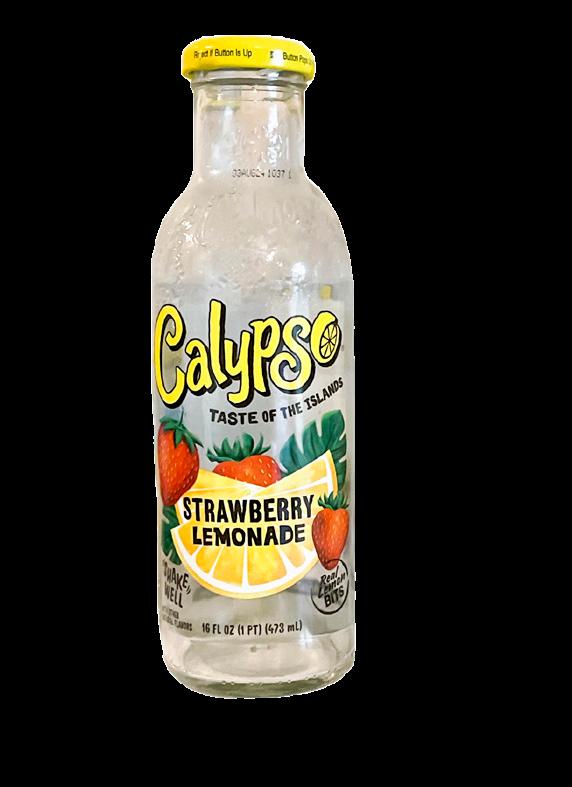
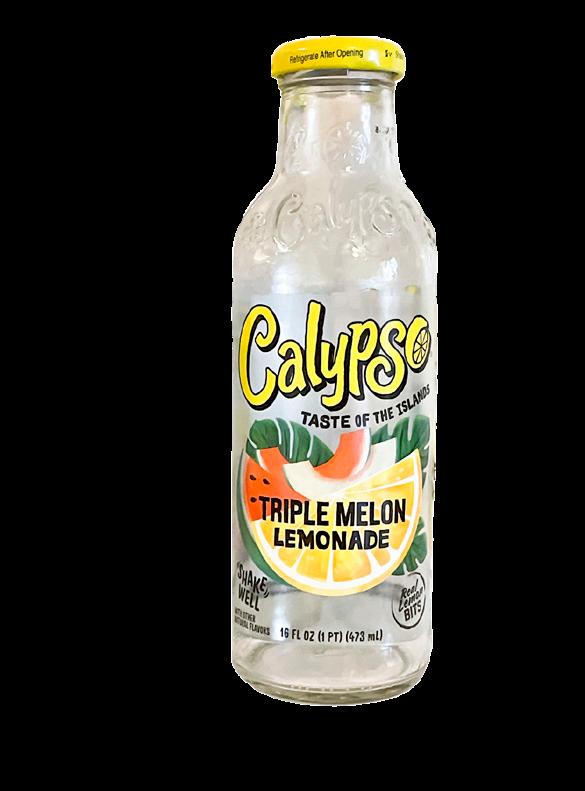

Last year, sophomore Isaac Reynen saw a Calypso Lemonade bottle for the first time when he was on a trip to the gas station with his mom. The design of the bottle immediately caught his eye.
“That night, I didn’t end up throwing the bottle away. And when I saw it the next morning, I was like, ‘You know what, this is such a nice bottle and I don’t want to throw it away.’ So I decided to clean the bottle out and leave it on my shelf,” Reynen said. “About a month later, I got another bottle and it spiraled from there.” Reynen’s shelf often gets crowded due to his growing collection. He started moving some books and other items around to provide the bottles with more space.
Eventually, his collection reached the point where one shelf alone could not support it anymore.
Therefore, he had to open up a new


shelf to allow room for the new bottles.
“Whenever I go to a gas station or a restaurant and they have a machine full of drinks, I’m always on the prowl for more Calypso bottles,” he said.
Over the summer, Reynen completed a congressional District VII internship. Whenever lunchtime arrived, he would always ask his family to go to a nearby restaurant, Dos Coyotes, even though he wasn’t a big fan of the food.
“I continued asking until the point where my dad and my sister were fed up with me and asked me why I always wanted to go there,” Reynen said. “You see, at the front of the restaurant where you go to order, there’s a big jar full of ice with a bunch of bottles inside. And you know what was in there? Calypso bottles.”
With 12 bottles in his collection, Reynen hopes to continue growing his collection until his shelves can not support any more bottles.



Senior Juliette Zúñiga’s passion for coin collecting registered when she bought her first Presidential Dollar collection book at age 8.
It wasn’t until the COVID-19 pandemic, that Zúñiga got serious about her gradeschool hobby.
“During COVID, I started watching videos on YouTube of people collecting coins to gain more knowledge,” Zúñiga said. “From there, I started making my own experiences.”
Her passion for coin collecting thrived for two main reasons: her inclination to gather items and the opportunity to learn more about history.
“I like to both find and sort through items, but also coins are like tangible history,” Zúñiga said. “Being able to find a coin from the 1940’s and learning the details about the different vintages, styles and artworks is something I really enjoy doing.”
She joined the Sacramento Coin Collecting Club, which exposed her to differ-




To keep her childhood interest alive, freshman Mayen Wood started a Spider-Man collection to embrace her favorite superhero.
When she was younger, Wood was always a fan of superheroes. Her favorite character soon came to light after watching the Spider-Man movies.
“I started collecting Spider-Man merch last year and, honestly, if I see something that has Spider-Man on it, I just buy it,” she said.
Although her current collection is fairly small, Wood plans to continue growing it over time.
As of this year, Wood owns four Spider-Man backpacks.
“Although the backpacks don’t last that long, I still go back to buy them because I’m obsessed with them,” Wood said.
Despite buying multiple Spider-Man backpacks, Wood’s favorite item in her collection is her Spider-Man-themed pair of Air Jordan 1s.
“I wear those Jordan 1s a lot and I would


ent conventions with many vendors who sell their coins.
Her most recent collection has a variety of coins but is noticeably lacking in dimes.
“Most people are only looking for silver dimes which are slightly harder to find and they’re very small so they’re not my favorite,” she said.
On the other hand, Zúñiga was more interested in finishing her collections of nickels.
“Nickels are my main interest so I was trying to get all the nickels from 1938 to 1964, but a few of those dates are lower mintage, which means that there are less of them in circulation, which made it harder to find,” Zúñiga said.
To highlight how much she valued her collection, she featured her passion for collecting in one of her essays to attend a fly-in program to tour Scripps College.
In the future, Zúñiga plans to maintain her collection and later pass it down to her future children.



say that they were the hardest for me to get, compared to any of the other items,” she said.
Not only does Wood enjoy collecting merchandise, but she was also able to make new friends, including sophomores Chloe Zhang and Ashly Omalu.
“At the beginning of the year, Chloe said she liked the Spider-Man movies and I met Ashly because she had a similar Spider-Man backpack,” Wood said. “From there, we all just clicked because we had similar interests.”
Aside from her Spider-Man collection, Wood has considered making a new one starring a different superhero.
“Honestly, I can see myself making another collection. If I did, it would be for Batman, but that’s just an idea for the future,” she said.
Along with starting a new collection, in the future, Wood intends to pass her current collection on to someone else who shares her interest in Spider-Man.

Wearing a different pair of shoes every day for a whole year would not be enough to go through sophomore Ashly Omalu’s collection.
When Omalu was in seventh grade, she came across a variety of shoes on social media which sparked her newfound interest in collecting them.
When it comes to expanding her collection, one of Omalu’s main concerns is finding a pair to match her clothes.
“If I don’t have an outfit to wear with the shoes then I won’t buy it,” Omalu said. “But sometimes I like collecting shoes to have a variety.”
Even with multiple different brands of shoes, Omalu’s biggest collections are from Dior, Prada and Balenciaga.
“Balenciaga shoes are definitely my favorite because I mostly like bulkier shoes, so I bought all the colors,” she said.
Back in eighth grade, her father noticed her interest in collecting shoes, so he designed a storage connected to her bedroom


for Omalu to store her shoes.
Omalu’s dad gifted her a pair of Kobe Bryant’s game-worn shoes, which she keeps in a glass case above her bed as one of her prized possessions.
“On my display, I keep the pairs that were the hardest for me to get or the ones that I like the most,” Omalu said.
Separate from her shoe collection, Omalu created a high-heel collection.
“Originally, I needed high heels for my eighth-grade graduation, which is when I got my first pair of high heels,” she said.
“My favorite high heels are the YSL [Yves Saint-Laurent] heels because the design is so minimalistic but it still looks luxurious.”
Over time, some of her peers have voiced their own opinions about her spending habits regarding this collection. However, she doesn’t allow those comments to bother her.
“I should be able to choose how to spend my money, and that’s exactly what I’m going to do,” Omalu said.

and touch
the hardened scales of the sand creature.
However, the movie relies mostly on real sets when it can, with Villenevue focusing on practical effects over pure digital.
As the previews for upcoming movies come to a close and “Dune 2” begins, the entire theater is enveloped in an orange glow. Immediately, the viewer is brought back into the world of Dune, where the desert landscapes of the planet Arrakis bring us right back to where 2021’s “Dune: Part One” left off.
Released in March, “Dune 2” is a film directed and written by Denis Villeneuve, with a score composed by Hans Zimmer.
“Dune 2” represents the latter half of Frank Herbert’s original 1965 “Dune” novel. The story follows Paul Atreides, the duke of the House of Atreides, and his final transformation into the leader of the Fremen, a desert people from Arrakis who have been subjugated by the Emperor.
In 2021, “Dune: Part One” received high praise from audiences and multiple Oscar awards and nominations, leaving fans wondering how Villeneuve would top it.
However, “Dune 2” completely blows the series’ original out of the water as a visually stunning film that is arguably Villeneuve’s best work so far, even coming close to surpassing legendary films such as “2001: A Space Odyssey” (1968).
“Dune 2” has the best visual effects of any movie released ever. The film balances CGI with real sets so perfectly that it is impossible to tell the difference most of the time.
In one scene, the desert army attacks the Emperor’s personal soldiers, the Sardaukar. The desert warriors summon sandworms that attack the Sardaukar, featuring one of the most impressive CGI shots in the entire film. The kilometer-long worms, while being completely digital, look so tangible one could almost reach out
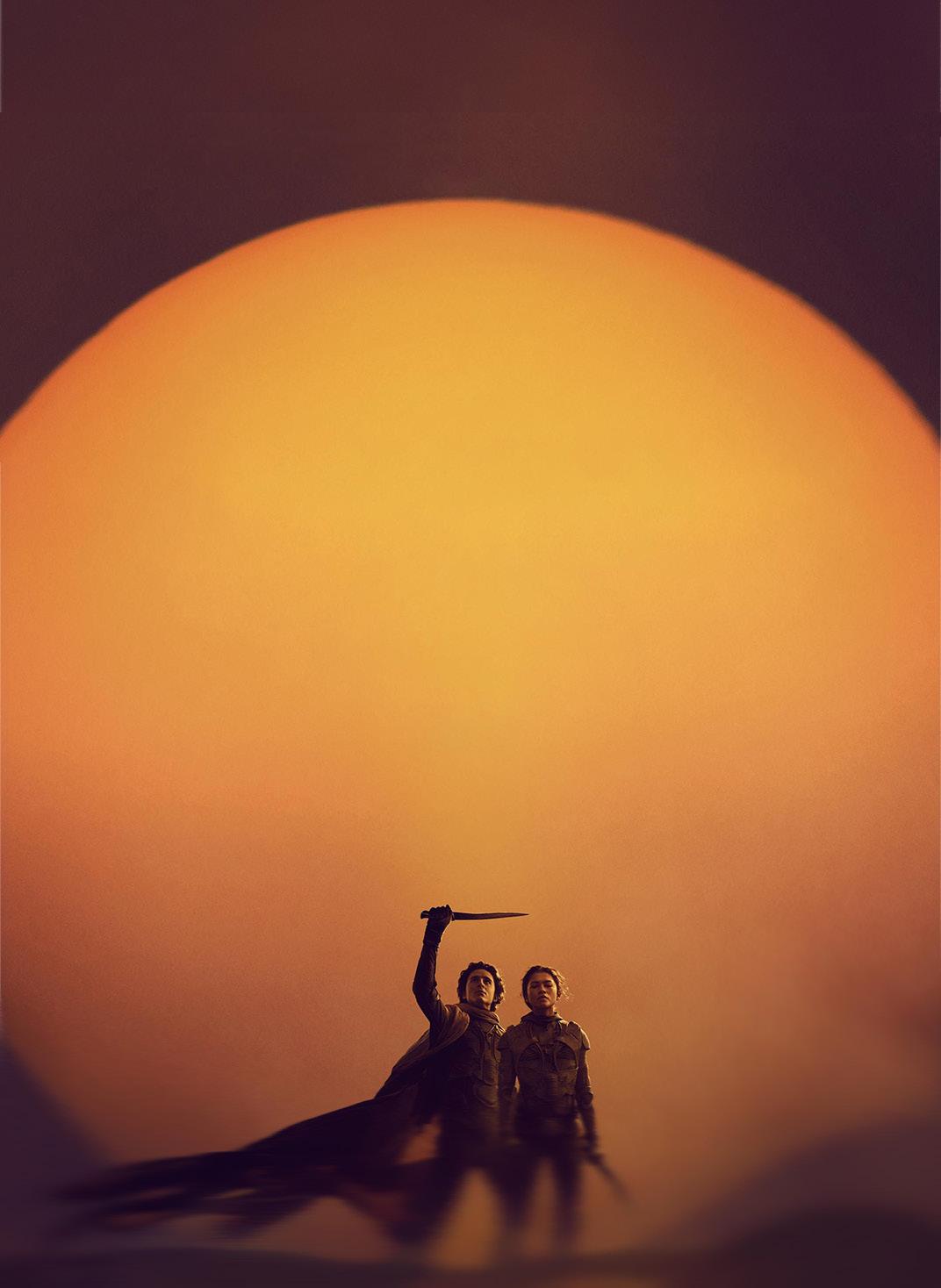
The Harkonnen arena on Giedi Prime was a real set—the gigantic arena was constructed on top of a soundstage in Budapest, Hungary and required over 100,000 square feet of space to build.
The sheer scale of these sets is palpable, the grandiose size in your face the entire experience. The production team killed it with this movie, letting out all of the stops with the grandeur of every shot.
The acting is also impeccable, with each cast member delivering even more powerful performances than in “Dune”.
One of the most notable examples of this is Paul Atreides’ (Timothée Chalamet) transformation from the son of a duke to a powerful, charismatic leader of a ginormous rebel masse.
This role displays an expansion in Chalamet’s acting abilities; despite usually playing boyish, younger roles, Chalamet completely steps up his performance in this film, delivering an extremely powerful speech in a made-up language to boot, while also demonstrating that he has the talent and capability to play a charismatic leader just as proficiently.
Austin Butler’s performance as the sociopathic killer Feyd-Rautha Harkonnen is equally enthralling, with Butler warping his own voice to imitate that of the Baron Vladimir Harkonnen (Stellan Skarsgård) to an incredible degree.
Feyd-Rautha is a terrifying screen presence right from his first scene.
The intense rivalry that Butler is able to create between his character and Chalamet’s is intense and exciting, as the dynamic between the two builds up until the final confrontation.
Hans Zimmer’s musical work in this movie is also brilliant. The score improves from that of the “Dune” version, which won an Oscar for its compositions.
Zimmer orchestrates a different, ethnic feel in the “Dune 2” score, playing into a more traditional vibe in contrast to the brooding tones in “Dune.”
Combinations of flutes and woodwinds with alien and jarring techno encapsulate the Dune universe, which is a balance between alien culture and advanced technology.
The piece, “A Time of Quiet Between The Storms,” is reminiscent of Zimmer’s work in “Gladiator” (2000), which features one of the greatest soundtracks of all time. The strong melodic lead of the track carries a theatrical and epic feel that reverberates throughout the entire theater.
The heavy synths that kick in at the end of the track also
sound echo the sounds of “Blade Runner 2049” (2017), another one of Zimmer’s earlier projects.
In any movie with a runtime just shy of three hours, dragging of the plot and losing the viewer’s attention are very real risks. However, “Dune 2” had me on the edge of my seat for the entire second half of the movie, as the suspense and anticipation for what was to come kept me wide awake throughout the film.
The scene with Lady Jessica drinking poison during a ritual and experiencing hallucinations was one of the most unnerving scenes in a scifi movie, and the scene’s menacing tones are repeated when Paul drinks the same poison later in the film.
Character development is expertly achieved, with most of the characters undergoing drastic changes throughout the film. Chani, played by Zendaya, initially distrusts Paul because she believes that he doesn’t have what it takes to become part of the Fremen. The two become friends and eventually lovers, as they learn to trust and rely on each other in their fight against the Emperor and the Harkonenns. However, Chani distrusts Paul again when the stakes start rising as Paul becomes an influential leader.
These types, character fluctuations, motives and evolving viewpoints keep the film enthralling and is another one of the many amazing aspects of this film.
“Dune 2” is one of, if not the best, science fiction projects to come out in a very long time, stunning audiences with its amazing visual effects, storytelling and music.
“Dune” received six Oscar awards in 2021. I predict that Dune 2 will receive double that total.


















